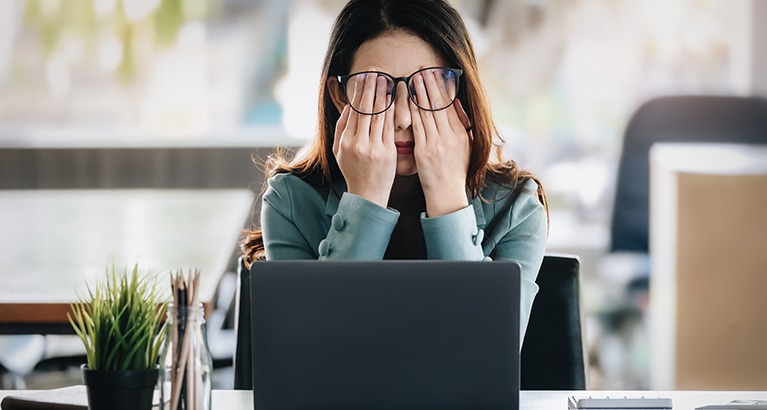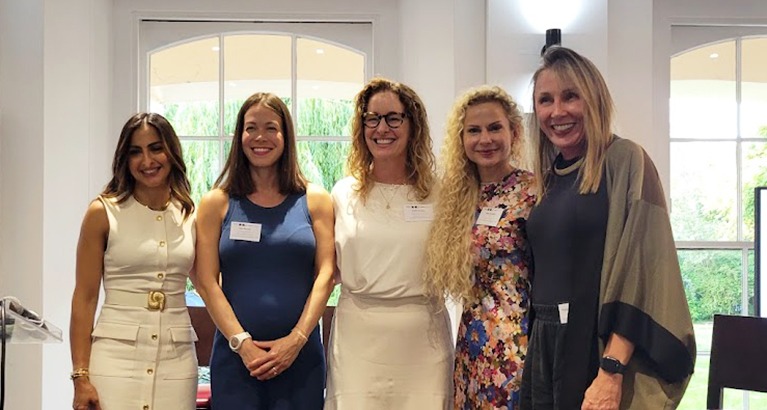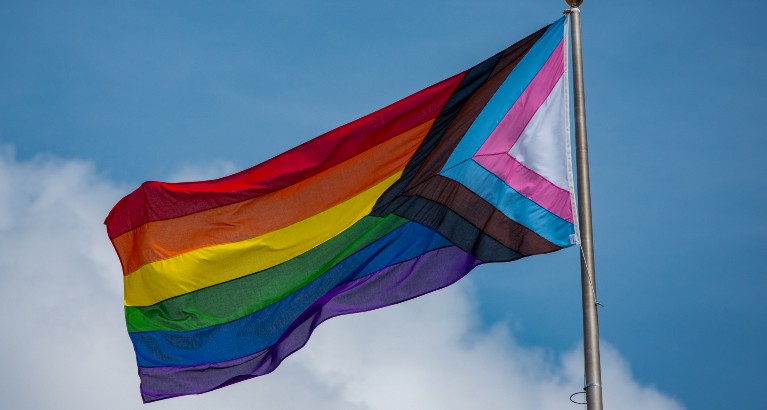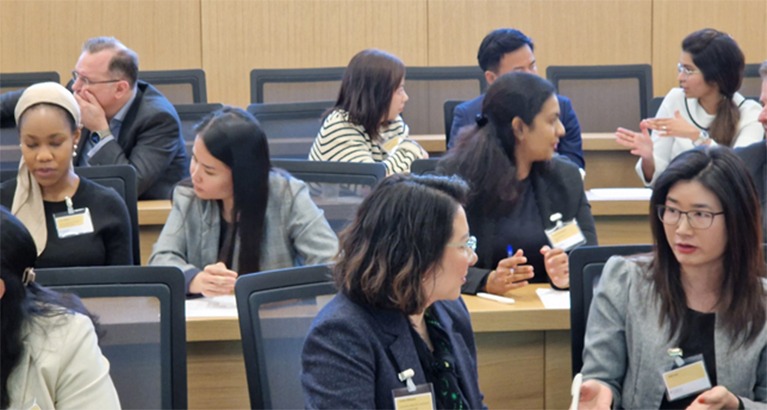Three current Executive MBA participants and one Executive MBA alumna came together for a panel discussion on how to deal with feelings of inadequacy and shared how the EMBA programme helped them silence that little voice.
The event brought together:
In this article we provide some edited excerpts of the discussion, entitled ‘That little voice: how to deal with imposter syndrome’.
How the EMBA programme equipped us with the skills to identify and manage imposter syndrome
Brooke Bornick: There was a reading assignment ahead of Orientation Week about imposter syndrome. One of the cohort mentioned how the assignment had resonated with her, exposing her vulnerability. Others joined in, confirming how she had voiced what they were thinking. We came out of Orientation Week with a much more open mindset, connected at a much deeper level.
Chloe Heath: Yes, one of my key takeaways from Orientation Week was you’re not alone. My old nemesis was management science. But many of the cohort admitted that they were struggling with it, too. That gave me reassurance.
Chris Whitaker: Chloe and I had angst-ridden conversations about management science. But we got through it. A lot of growth comes through learning how to manage impostor syndrome, not only in terms of having a dialogue about it but also saying, ‘I am resilient and will come through it and take that momentum and learning going forward’.
Hamsini Satchithananthan: Almost everyone on the programme has imposter syndrome at some point but the cohort helps you reframe it. When I voiced my apprehensions about transitioning careers, someone completely reframed it for me, to the extent that I almost didn’t recognise myself. You are your own worst critic, but you’ve probably got the best cheerleading fanbase in the cohort itself.
Imposter syndrome long-term: learning to be comfortable with being a little uncomfortable
Hamsini Satchithananthan: I think I’ll always have imposter syndrome. You think you have to be all knowing and perfect, and only then will you deserve to be in the role you’re in. The EMBA helps to numb imposter syndrome because you acquire a skillset you can build on. I think that’s why many people do the EMBA.
Chris Whitaker: I’ve tried to reframe it as productive growth. You have to be comfortable with being a little uncomfortable. There will always be people who are smarter than you, who know more than you. But be clear about your own value. Focus on what you yourself can bring to the table. That grounding helps you quell the feeling of being an imposter.
Brooke Bornick: You might not have deep experience in one area but think of it as the letter T: the horizontal bar is your ability to collaborate across disciplines, whereas the vertical bar is your depth of expertise. The exposure you have to other areas makes the depth you have more valuable.
Chloe Heath: I totally identify with the T shape Brooke just mentioned. I’m a generalist and feel insecure that I don’t have a depth of skill. But I’ve realised that the generalist can ask some interesting questions when someone goes down a particular rabbit hole. You can be a protagonist in that situation.
How imposter syndrome hits women harder
Brooke Bornick: I think women are more likely to admit to it but men are equally susceptible. During the EMBA, I shared some difficult life changes I was experiencing. A surprising number of men said they could identify with what I was going through. The shared experience was critical, coming at a time in our lives when many of us were making big transitions. Having that safe network was amazing
Chloe Heath: The environment can determine the level of imposter syndrome and how much women experience it. For example, going back into a work environment when you’ve become a mother brings a lot of feelings of insecurity. You feel like you’ve fallen behind in your career and are wracked with worries and concerns. I never got the sense that my male co-founder was grappling with imposter syndrome, whereas I felt such a fraud.
Chris Whitaker: Allyship is important. Irrespective of gender, we can all help each other through. I have a disability and one of the first things I did when I connected with the cohort was to disclose the fact that I had an impairment. That was quite a radical way of announcing myself to the cohort. I’ve experienced quite a lot of imposter syndrome in the past year due to having a disability, asking myself if I should really be here and feeling I had to compensate. Imposter syndrome can affect us all in different ways, but we can support each other to navigate our way through it.
The advice we’d give to our younger selves
Brooke Bornick: Be more aware that, a lot of the time, people are putting on a front. You can also put on a mask, but it doesn’t sit well. Be your authentic self.
Chloe Heath: Be patient with yourself. It’s OK to spend longer than you think you should in a particular role, and it’s OK to be a generalist. Embrace it and there’s no need to feel insecure.
Hamsini Satchithananthan: Retain your perspective and outlook. There’ll be stumbling blocks along the way but don’t let them faze you.
Chris Whitaker: Don’t overthink it. Be relentless. Remain true to yourself and you’ll be alright.
[1] Sakulku, J. and Alexander, J. (2011) “The Impostor Phenomenon” Behavioral Science Research Institute
Executive MBA programmes at Cambridge
Our EMBA programmes are designed for you if you are a senior executives looking to apply your knowledge and skills as you learn.









